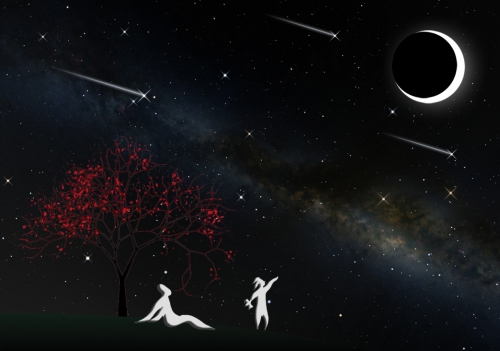
Stargazing Nights - CLOSED
- Where:
- Frosty Drew Observatory and Science Center
- When:
- Fri, May 17, 2024 - CLOSED
- Cost:
- This Event is Cancelled
Welcome to the Frosty Drew Observatory and Science Center's Stargazing Nights! Every Friday night (weather permitting) we open our Observatory, Science Center, Sky Theatre, and telescopes to the sky and offer free stargazing and astronomy to anybody interested in observing with us.
Tonight is the last Spring Stargazing Nights event of 2024 before we kick off our Summer Stargazing Nights next Friday. Forecasts for tonight are calling for a lot of variability with anything from patchy clouds to overcast conditions with rain. The 70% waxing gibbous Moon will be with us tonight, which is a fantastic phase for observation, but the forecast for clouds and rain will make it difficult to keep the observatory roof open. Unfortunately, with the potential for rain, we will stay closed tonight, and will open next on Friday, May 24, 2024 at 6:30 pm with our first Summer Stargazing Nights event of 2024. We’ll see you then!
Take a moment to catch up on some space fantastication in:
A Celebration of Space - May 17, 2024
Be sure to subscribe to the Frost Drew Observatory mailing list and follow us on Instagram to receive status updates about our Stargazing Nights program and more.
Preparing for Your Visit:
Check out our page on Visiting Frosty Drew Observatory to learn more about what to expect at the Observatory and better help you prepare for your visit.
How to Prepare for Springtime Conditions: The Frosty Drew Observatory is located inside Ninigret Park and borders the Ninigret National Wildlife Refuge. Insects and arachnids are a concern when visiting the Frosty Drew campus. We have observed mosquitoes, green head flies, deer flies, ticks, biting ants, and more. Please read the Mosquitoes and Insects section on our Visiting the Observatory page to familiarize yourself with adequate preparation measures.
Please note that we do not allow any white lights on our campus or in Ninigret Park from dusk - dawn, with the exception of low beam headlights while in motion. This is to ensure an equally awesome view of the night sky for all and to allow for the use of light sensitive astronomical equipment. Learn more about why we have this requirement in The Red Light District.
